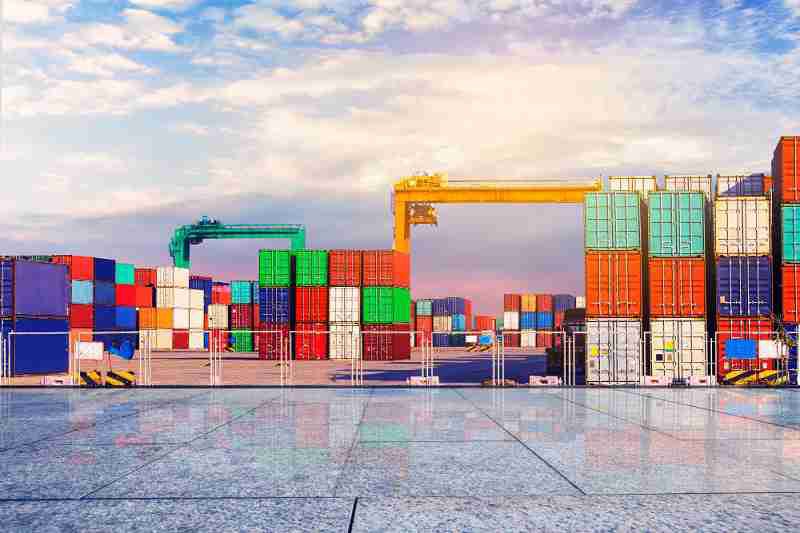
The shipping industry is essential to international trade because it makes it easier for goods to travel between continents. However, the negative effects of conventional shipping methods on the environment, especially in terms of carbon emissions, have prompted questions about sustainability. In order to address these environmental issues, the idea of "green shipping" has become more well-known recently.
The strategies and best practices for sustainable ocean freight will be covered in this blog, emphasizing how crucial it is for the shipping sector to adopt more environmentally friendly practices.
What is Green Shipping?
The term "green shipping," also referred to as "sustainable shipping" or "eco-friendly shipping," describes the use of environmentally friendly procedures and tools by the shipping industry to lessen its impact on the environment. The International Maritime Organization (IMO) estimates that maritime shipping accounts for about 2.5% of the world's greenhouse gas emissions.
Shipping companies are implementing various best practices and strategies to address this issue and improve the sustainability of their operations. Both technological advances and operational enhancements are included in these strategies. Some important steps include purchasing energy-efficient vessels, using alternative fuels like liquefied natural gas (LNG) or biofuels, planning routes to reduce fuel consumption, and implementing advanced vessel maintenance and hull cleaning techniques to reduce drag.
Role of Ocean Freight Shipping Companies
Ocean freight shipping companies greatly contribute to promoting sustainable practices in the shipping sector. Businesses prioritize environmental concerns in their operations as the demand for green shipping rises. These businesses can significantly lower their carbon footprint by spending money on environmentally friendly technologies.
Using greener energy sources, like wind or solar power, to support auxiliary systems onboard vessels is another way ocean freight shipping companies can support sustainable practices. In order to develop and implement cutting-edge solutions for greener shipping, they can also look into collaborations with academic institutions and governmental bodies.
Optimizing Ocean Freight Rates and Quotes
Sustainability is important, but it's critical for shipping companies to balance it with their need to remain profitable. When choosing shipping services, businesses must consider various important factors, including ocean freight rates and quotes. However, a number of variables, such as fuel prices, vessel capacity, and market demand, can affect these rates.
Companies can use tactics like consolidating shipments to increase container utilization, implementing efficient supply chain management systems, and using technology to streamline operations to reduce ocean freight rates. This may result in cost savings while also lowering carbon emissions generally.
Embracing International Freight Best Practices
Overstating the value of sustainable shipping methods for goods internationally is impossible. International standards and regulations for green shipping must be established through cooperation between governments, regulatory organizations, and industry stakeholders. The industry as a whole may adopt sustainable practices as a result of this collaboration.
Fostering accountability and transparency within the sector is also essential.
Shippers and freight forwarders should consider collaborating with shipping firms that strongly emphasize sustainability. This is possible by assessing their environmental policies, certifications, and prior performance.
Importance of Free Ocean Freight Quotes
Businesses engaged in international trade must obtain precise and affordable ocean freight quotes. Shippers can compare the costs and services that various shipping companies have to offer by requesting free ocean freight quotes. These quotations can offer insightful information about shipping companies' environmental policies when viewed in the context of sustainable shipping.
Businesses should consider incorporating sustainability-related criteria into their evaluation process when requesting ocean freight quotes. They can enquire about the shipping company's efforts to cut emissions, adopt greener technologies, and improve fuel efficiency. This encourages shipping companies to prioritize sustainability in their operations and encourages shipping that is environmentally responsible.
Promoting Sustainable Ocean Freight Cargo Handling
Effective and sustainable cargo handling techniques are crucial to reducing the shipping industry's environmental impact. Regarding ocean freight, streamlining the processes for loading and unloading cargo can significantly cut fuel use and emissions.
Shipping firms can use lightweight packaging materials, optimize containers to maximize space utilization and implement automated cargo handling equipment to decrease manual labor and boost productivity. Additionally, minimizing delays and idle time can help reduce carbon emissions.
Supply chain participants can also investigate the use of eco-friendly packaging materials, such as recyclable or biodegradable options, to reduce waste production. The shipping industry can help make ocean freight transportation more sustainable overall by emphasizing sustainable cargo handling procedures.
Collaboration and Innovation in Green Shipping
Collaboration and innovation across the shipping industry are necessary for the shift to green shipping. To develop and implement sustainable solutions, it is necessary for governments, regulatory organizations, shipping companies, and technology providers to collaborate.
Collaborations between public and private organizations can help advance research and development for environmentally friendly technologies, like renewable energy-powered zero-emission ships. Shipping companies may be persuaded to invest in greener practices by financial incentives, tax breaks, and subsidies.
Furthermore, industry conferences and knowledge-sharing platforms are essential for spreading best practices and promoting innovation. These platforms allow participants to communicate, share successes, and gain knowledge from one another's experiences. The shipping sector can speed up the adoption of sustainable practices and fuel the global emergence of green shipping by fostering collaboration and encouraging innovation.
Conclusion
The emergence of green shipping represents a transformative shift in the shipping industry, addressing the environmental challenges associated with traditional practices. By adopting sustainable tactics and best practices, such as investing in eco-friendly technologies, enhancing routes, and prioritizing efficient cargo handling, the shipping industry can significantly reduce its carbon footprint.
With FreightMango, a top supplier of environmentally friendly logistics solutions, you can learn more about environmentally friendly cargo handling procedures and the group efforts fostering the growth of green shipping globally.





 Get instant quote
and compare offers in real time
Get instant quote
and compare offers in real time